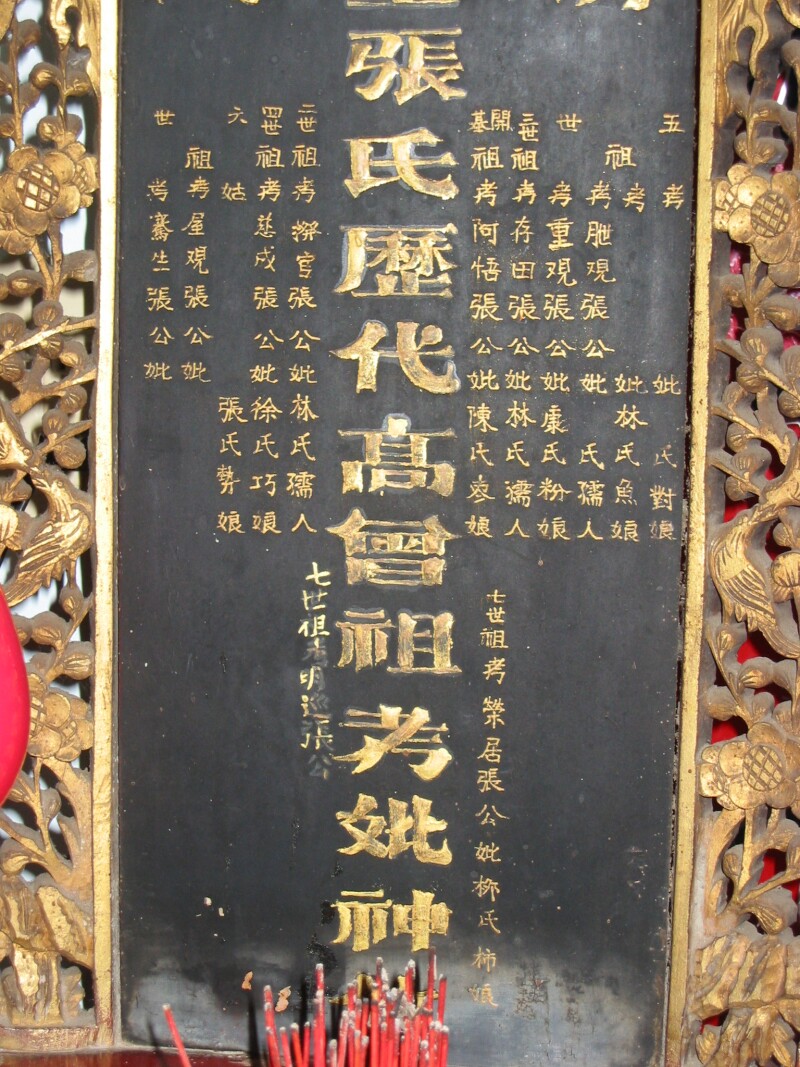In Chinese culture, ancestral tablets are a unique way to preserve family heritage. The tablets represent deep feelings of filial piety and respect. They not only give information about deceased relatives but also symbolize family connection. They are a fascinating link between the past and the present.
What Is a Tablet?
The ancestral tablet is also called the spirit tablet. It is a small wooden or stone tablet containing information about the identity of deceased ancestors and is typically placed in ancestral halls, temples, or homes. The tablet is usually engraved with the ancestor’s name, date of birth, generation, status, and even stories. It holds valuable family information and symbolizes the continuation of the deceased in the minds of future generations.

Although a symbol of piety and heritage in traditional Chinese culture, especially in southern China, the tablet may not be equally prevalent among all Chinese groups. Its use can vary by region, socioeconomic status, and age group—it is less common among younger generations. Although dates for its origin vary, some people trace its roots back as far as the Zhou Dynasty (1050–221 BC).
Why Is the Tablet Important?
Ancestral tablets are not only reminders of our ancestors and their contributions to our lives, but they also carry important information about family history. These tablets embody the family’s historical memory and are an important link between the past and the future. Studying ancestral tablets can give a deeper understanding of the family’s heritage and can lead to the discovery of forgotten family stories.
The tablets are also a physical object or site for memorial ceremonies to honor and remember ancestors. Such ceremonies generally involve burning incense and making food offerings.
If the family does not have an online family tree or ancestral tablet, then knowing whether the family has an ancestral hall can also offer clues to family history. In traditional Chinese culture, the ancestral hall is a room or structure where families honor ancestors and keep family records, including ancestral tablets. To find out if your family has an ancestral hall, inquire at local libraries, FamilySearch centers, and historical societies for any documents that might mention your family’s ancestral hall or lineage. Look for a family “hall code” or “hall name” (tanghao) that can lead you to the ancestral hall and to other family records. The family ancestral hall may contain even more information than an ancestral tablet.
Preserve Ancestral Memories with FamilySearch
The ancestral tablet is not just a piece of wood or stone, but a symbol of respect for ancestors. In today’s digital age, genealogy platforms such as FamilySearch.org also give a way to remember ancestors. Both methods are helpful—the tablets are a tangible focal point inside a home for ancestral memories, and digital family trees make it easy to add, retrieve, and preserve information.
If your family has an ancestral tablet, you can add the information from the tablet to a digital family tree, such as the FamilySearch Family Tree. Every sign in and review is like a memorial ceremony, allowing family members to remember and honor their ancestors on the online platform. Entering ancestors’ names, dates of birth, and dates of death into an online family tree preserves this valuable family data in a systematic way. This process not only allows traditional culture to continue in modern society but also gives members of younger generations more opportunities to understand and respect their ancestors.
FamilySearch’s Memories feature is a place to locate and upload photos, audio, and videos of ancestors. You can also write and publish your own memories and stories there. Whether these memories are a record of ancestors’ lives or a family legend about the tablets, they can help preserve and share the family history.
Related Articles
At FamilySearch, we care about connecting you with your family, and we provide fun discovery experiences and family history services for free. Why? Because we cherish families and believe that connecting generations can improve our lives now and forever. We are a nonprofit organization sponsored by The Church of Jesus Christ of Latter-day Saints. To learn more about our beliefs, click here.





